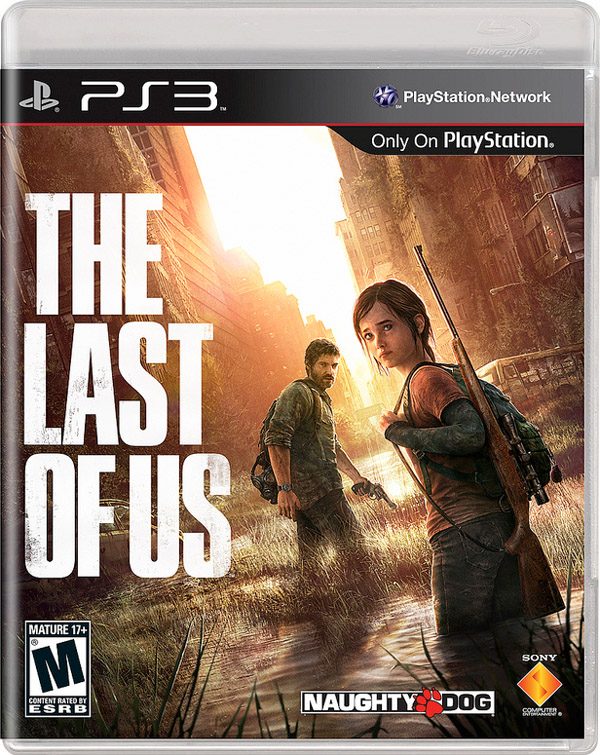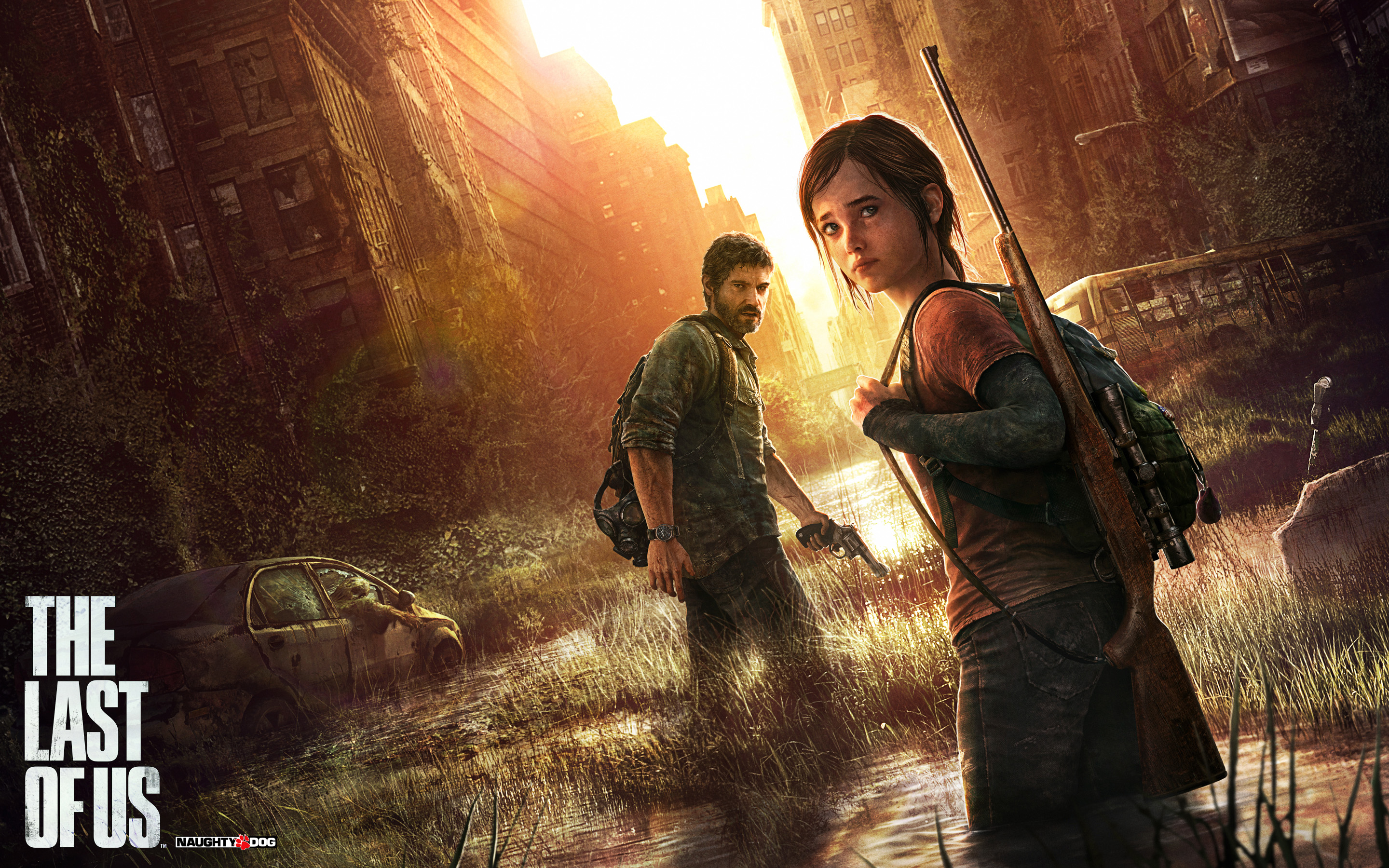(Note: I don't review the multiplayer aspects of the game, or even the gameplay for that matter. This is strictly based on the story. I don't review video games as a whole, so I don't know the *right* way to review something like THE LAST OF US. This is simply my response to the game as I played it. If it reads like a movie review, that's because in the end, THE LAST OF US is a movie.)
Nordling here.
I've reviewed many movies and even books, but I'm certain I've never reviewed a video game before for AICN. And, if I'm honest, I still haven't. Because THE LAST OF US isn't, strictly speaking, a game. Before people get all into the "Are video games art?" debate, I'm sidestepping the question a bit because if THE LAST OF US is anything, it's more of an interactive story. As best as I can determine, you can't change the outcome, and the interactivity strictly moves the story forward. I'm not sure it even qualifies in the debate. For the sake of clarity, I'll call it a game, but THE LAST OF US is more than that.
When people think of video games as art, they tend to think of games like THE LAST OF US, a different mode of storytelling than simply reading or watching it on a movie screen. Because it involves the audience in a more personal nature, having them manipulate the surroundings of the story, it gives it a more personal feeling. The range of emotions feels as if it's coming from the player instead of the characters onscreen. It's a different way to tell a story, but it's still storytelling, and to me that qualifies as art. This isn't a discussion of quality, just semantics.
But the quality of the story in THE LAST OF US is what matters, and as a story, it's one of the best interactive stories I've had the pleasure to experience. There are themes and emotions in THE LAST OF US that are very rarely touched upon in games like this. I don't think it's any accident that the game was released on Father's Day weekend, because as a father I responded to quite a bit in this game, and there are moments so breathtakingly emotional that I'm still thinking about them days later. Much like a great movie, huh?
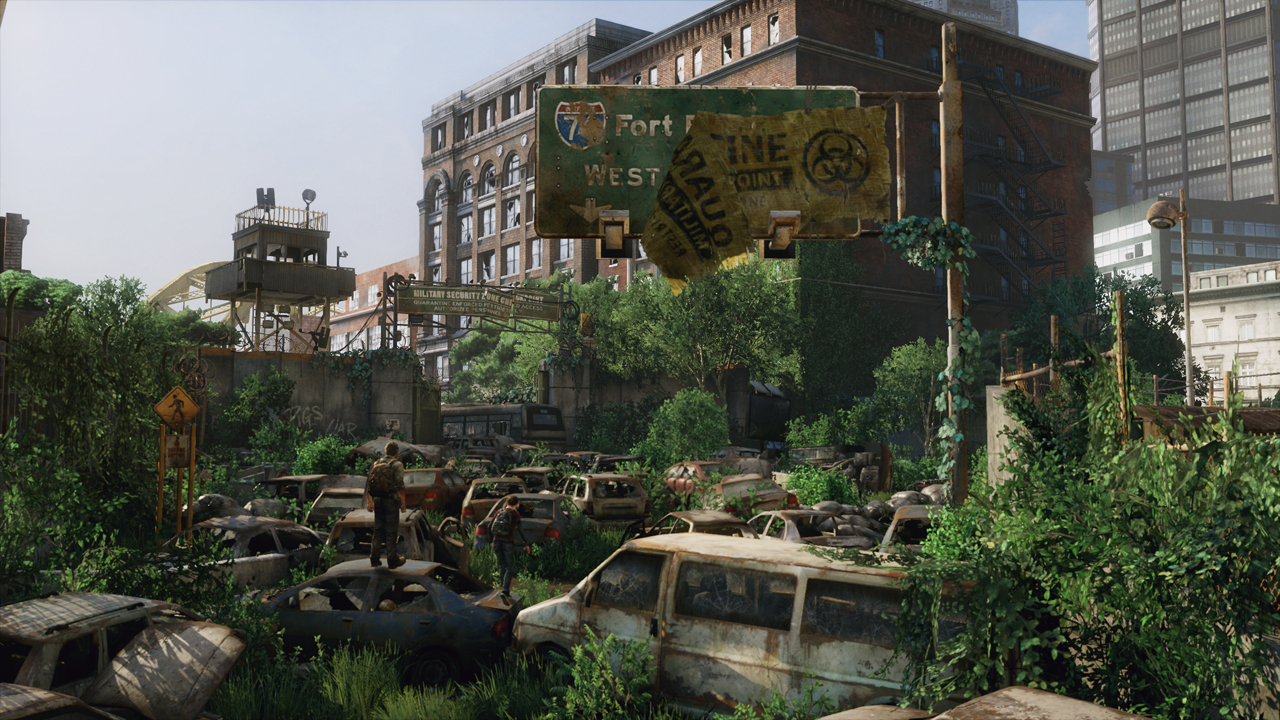
The Cordyceps fungus enters the brains of small insects and takes over their motor functions, causing them to go to a location best suited for the release of those spores and die. The fungus then grows from the insect's body and releases its spores out into the wild, for other insects to catch. In THE LAST OF US, that fungus has mutated to infect humans, causing them to go mad and attack other people around them. In the opening scenes, Joel (Troy Baker) awakens his 13-year-old daughter Sarah (Hana Hayes) to evacuate their small town in Texas with Joel's brother Tommy (Jeffrey Pierce). But things go bad very quickly, and when the army moves in to restore order, Sarah is brutally shot and killed.
Cut to twenty years later, and society as we know it no longer exists. People are trapped in quarantine zones, but that's much better than being stranded outside, where the fungus grows unchecked, turning humans into horrifying monsters. The government summarily executes anyone who is infected, and most people rob or kill for their daily food. It is a world slowly coming to an end, and even the radical political group known as the Fireflies, led by Marlene (Merle Dandridge), cannot bring hope to the people. With no cure for the Cordyceps fungus in sight, humanity seems doomed.
Joel is now a smuggler in Boston, trading guns and goods for ration cards. He's a husk of a man, simply surviving, without hope, and without family. Tess (Annie Wersching), his partner, has the skinny on a shipment of guns that one of their brokers owes them, and when Joel and Tess go to get them, they meet Marlene, who gives them a special job - escort a little girl named Ellie (Ashley Johnson) across the country to the Firefly headquarters. Ellie, it seems, is immune to the Cordyceps, and she may be humanity's last hope for a cure.
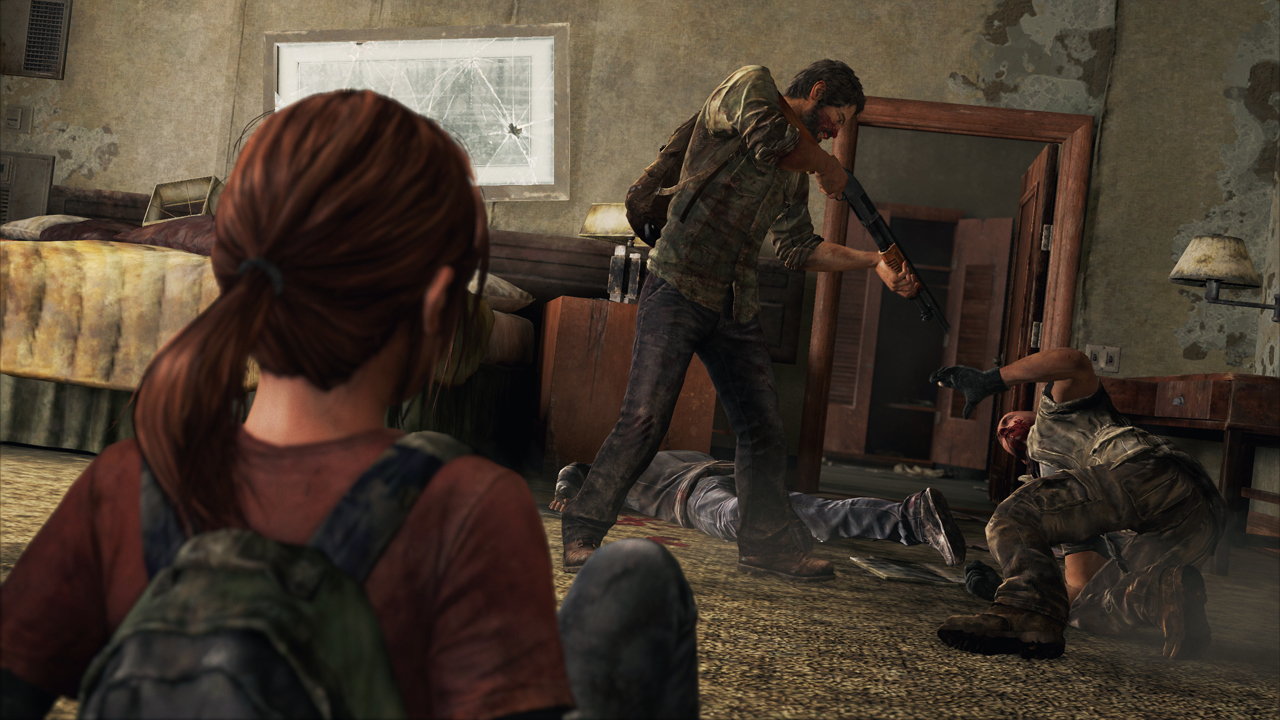
With that, the game's story takes us to many different locations across America - from Boston, to Pittsburgh, to the Rocky Mountains, to Salt Lake City - as Joel and Ellie traverse the countryside. The relationship betwen Joel and Ellie feels genuine - it's predictable, yes, but it's the interactions between the two that give the game its emotional heft. We are, of course, reminded of Joel's dead daughter as he slowly warms to Ellie, but the game isn't as obvious about that emotional shift as you might think. And as Joel dispatches bad guy and Infected, one after the other, through the gameplay we begin to realize that Joel (and by extension ourselves) will do anything we can to to save this little girl.
But it's the third act of THE LAST OF US that pushes the game into classic territory. It's very rare that a game has provoked me into tears, but during the final hours, THE LAST OF US managed to do it to me several times. You try playing through an action sequence when you're crying. It isn't easy. When a game moves its audience in that fashion - and again, I hesitate to use the word game; semantics aside, this is a story, no matter what mode it uses to get its themes and plot across - you have to start thinking about what art really is. Personally, I think art is something that is designed to give people who are witness to it an emotional response. So, by that definition, THE LAST OF US is art, because the deep emotional resonance of that last act of the game still stirs within me like some of the finest books or films that I've seen.
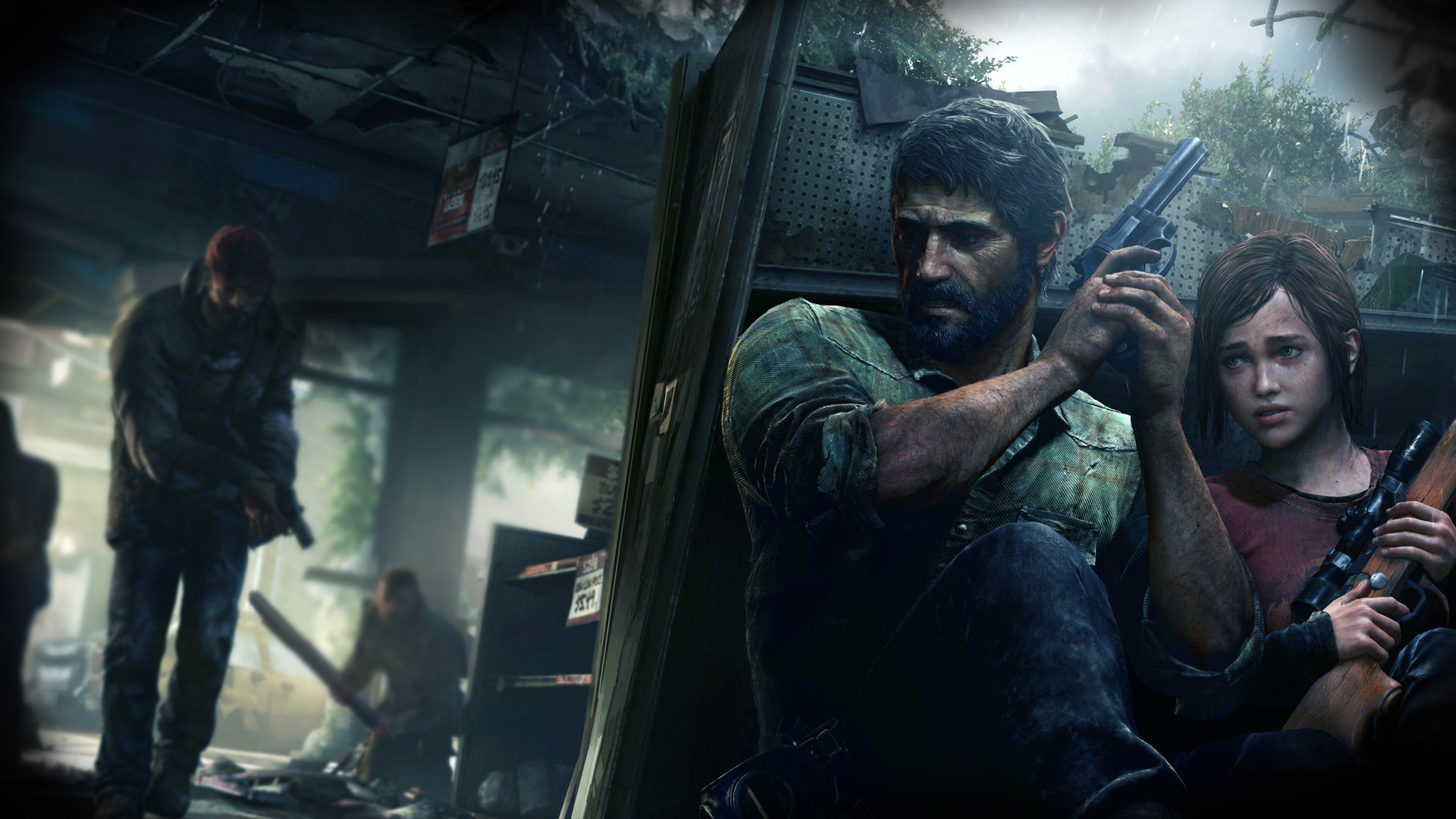
All fathers lie. They lie to their children, they lie to themselves. They lie because the truth is harder. The truth can stop a person in their tracks and take away all hope. The lie can be the carrot that draws the horse; the impetus to keep going. Any father intrinsically knows this; it's not something to be proud of, but there are times when you simply must lie to your children becausr the truth means they may simply quit, overwhelmed with the odds and the difficulties of it all.
Joel may not be a good man, we come to realize, but he has purpose. That purpose makes him a dangerous person, and I love how THE LAST OF US subtly shows how with just a push, a man (or woman) can turn into a monster. Troy Baker's voicework here is terrific; he puts that desperation and darkness into Joel. Ashley Johnson's Ellie is just as amazing - as the character grows, and sees the cruelty of the world, Ellie changes too. Sometimes the children know the lies of their fathers, and choose to embrace them, because the alternative is madness. I've never played a game with such shades of gray before, and with such subtext. Obviously response to the game will vary, depending on the person, but being put in these characters' shoes is a remarkable way for a story to get its emotions across.
I've read some differing responses about the ending. I won't spoil it here, but for me, THE LAST OF US ended the only way it could have. The choices Joel made feel like my own, and after THE LAST OF US ends, they feel like choices I would have made, regardless of the outcome and what it means. In a father's eyes, the needs of one will always outweigh the needs of the many. It feels honest. It feels earned. And it feels true.
THE LAST OF US is a remarkable story. Yes, it's a "zombie" game, but that almost feels incidental. The power, emotion, and themes of THE LAST OF US are strong, and if people are going to get hung up on how the story is delivered, that's their loss. I'm not here to say whether video games are art. That's not for me to decide, or if there is even a decision to make. THE LAST OF US is, though. It's a compelling story, told with confidence and skill. From the days people gathered around the fire to now, storytelling has always been an art. THE LAST OF US is brutal, ugly, harsh, and in the end quite beautiful. It's a gift to all of us who love stories.
Nordling, out.

